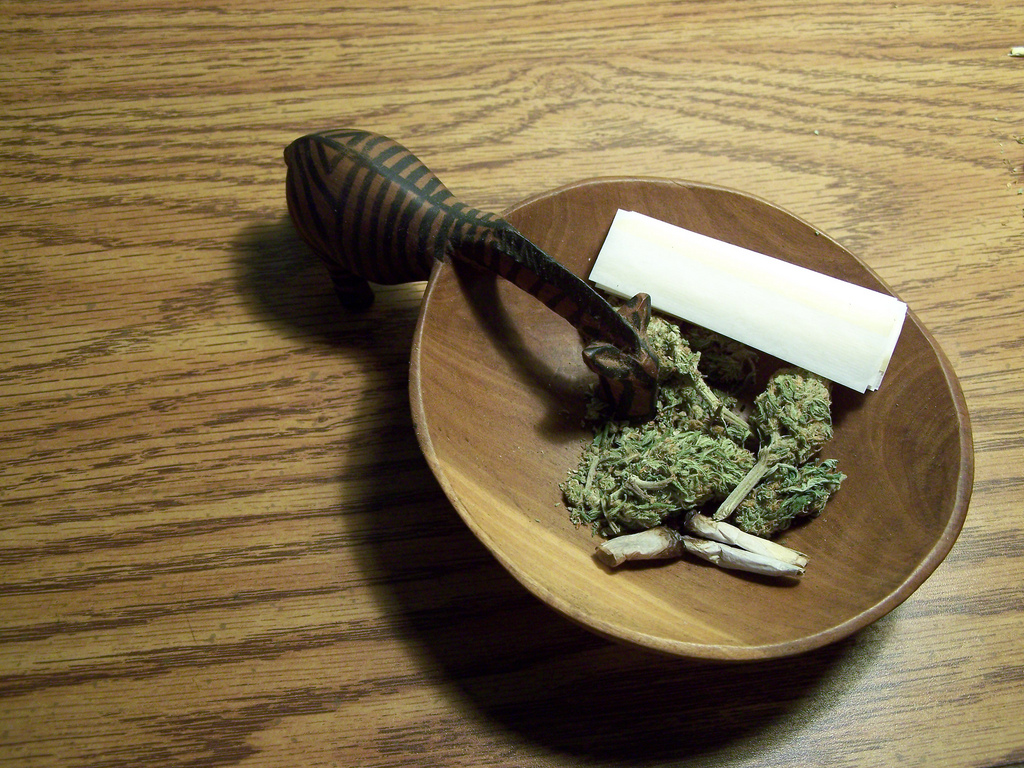
Drug law enforcement has had little success in reducing the availability of illegal drugs. Photo: Blind Nomad via Flickr
Drug law enforcement is ineffective according to a recent Australia 21 report.
The report reccomends that Australia should focus efforts on support for drug users, and that although billions of dollars were spent on law enforcement and putting youths behind bars, illegal drugs remain easily accessible.
It also said more money should be spent on strategies such as harm reduction and the treatment of drug users as the Government was not doing enough in that area.
Australia 21 suggested a range of reforms including the establishment of supervised injection facilities and increasing the availability of sterile injecting equipment.
While drug use accounted for 2 per cent of Australia’s total burden of disease in 2003, most of it was related to Hepatitis C contracted by risky injecting practices.
Matt Riley, a member of the Help End Marijuana Prohibition (HEMP) Party of Australia, said law enforcement should not have anything to do with drug users and the government should offer support instead.
“It is a personal health or medical issue and not a police issue. What they need is help. They don’t need the police kicking down their door and traumatising them,” he said.
New proposal to decriminalise drugs
The report also put forward a proposal submitted by Professor David Penington, a former chairman of the Victorian Premier’s Drug Advisory Council, to decriminalise the possession and use of certain drugs.
Mr Riley said drugs such as cannabis should be made legal.
“I have not heard a good reason why they should be illegal, and addiction is not a reason,” Mr Riley said.
“Coffee is addictive and so is alcohol. A whole lot of pharmaceuticals are addictive. If addiction was a reason for it to be illegal, then everything would be illegal.”
Mr Riley also said the problem associated with drugs is very small, especially when compared to problems due to alcohol or smoking.
Australian Drug Law Reform Foundation president Alex Wodak said there was a study which shows how the treatment of heroin dependence with controlled and prescribed heroin can actually make a difference.
“This [the study] showed that between 1992 and 2002 the number of new heroin users in Zurich was reduced from 850 in 1990 to 150 in 2002,” Dr Wodak said.
“Corresponding with that was a decrease in drug overdose deaths, a decrease in HIV infections among injecting drug users, a decrease in crime and a decrease in the quantities of heroin seized.
“Clearly, what was happening was that people were moving from black market heroin to white market methadone and white market heroin. This showed that treatment does work at a population level.”
Under former Premier Geoff Gallop, the possession of small quantities of marijuana was decriminalised in Western Australia.
In that time, the usage of marijuana decreased from 13.7 per cent in 2004 to 10.8 per cent in 2007, according to the National Drug Strategy Household Survey.
Former Chief Minister of the ACT Kate Carnell also gave her support to Australia 21’s proposal.
“There seems to be a pretty good consensus among us about medical cannabis. I have heard no one to talk against it. I think I also heard a fair bit of support for medical heroin,” she said.
“So at the very least, the reinstatement of substances in the pharmacopeia that were useful and continue to be useful drugs that were removed for non-medical reasons needs to be rectified.”
“We need to control access to these substances in the same way as we regulate other drugs, rather than leave their production and marketing in the hands of criminals.”
View Drug laws in various countries in a larger map
